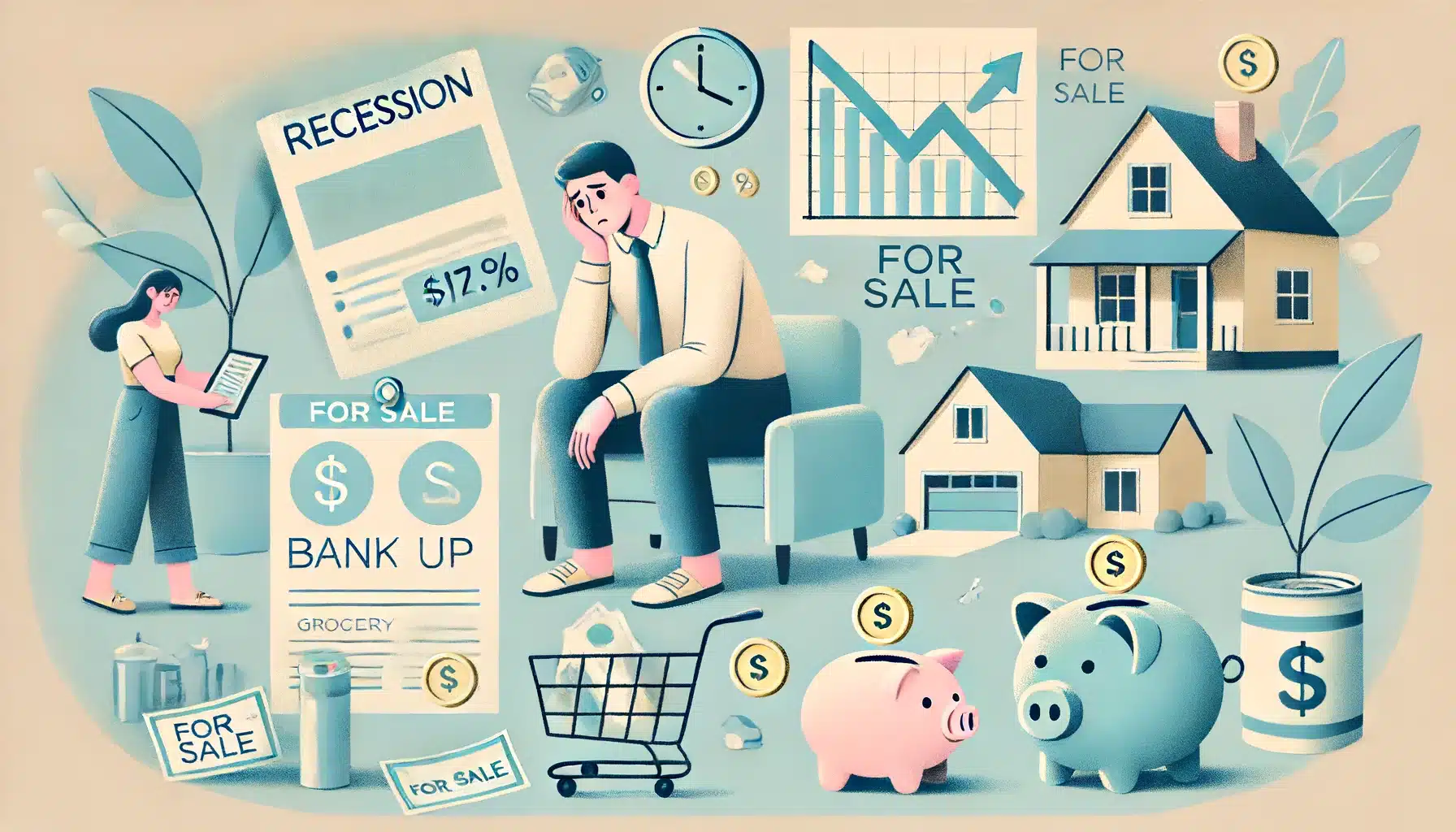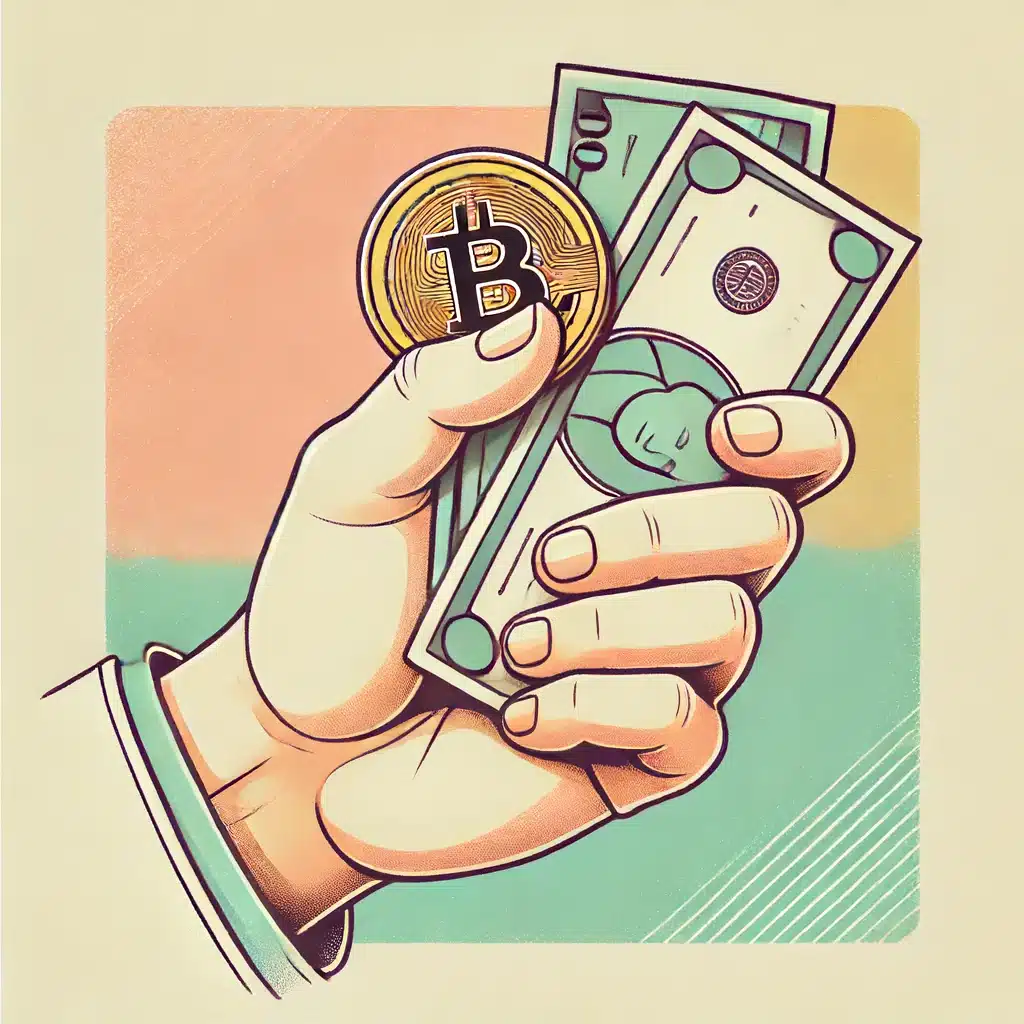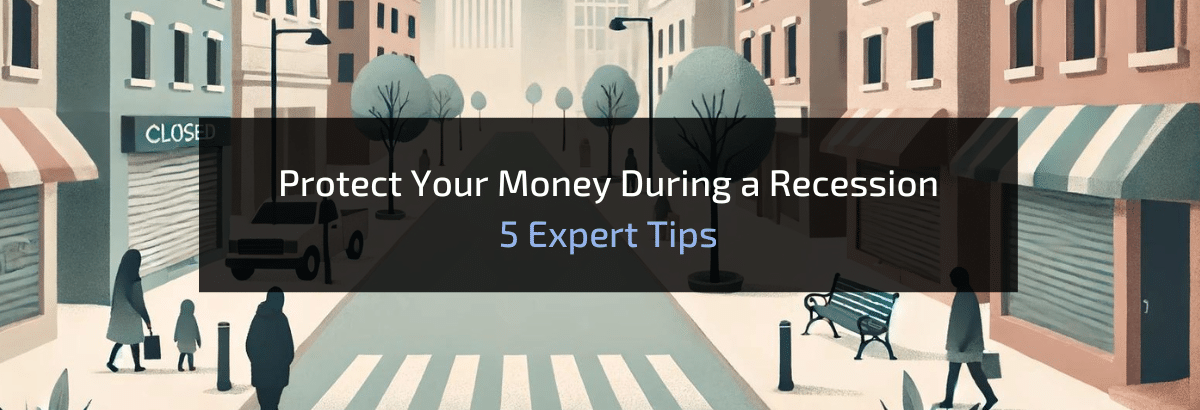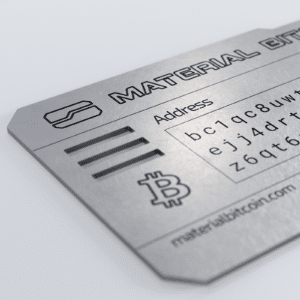The term recession has been tossed around in recent years within the finance industry. The post-pandemic environment global wars, government elections, and uncertainty never help when trying to predict the economy’s future.
Recessions indicate a downfall in economic activity, usually brought on by a poor GDP and other global factors.
They bring about panic in so many people because they can lead to higher unemployment rates, lower consumer spending, and a general lack of business investing. For example, the housing crisis of 2008 led to an unemployment rate of 10% in the US and caused the S&P 500 index to drop by 57%.
Understanding what a recession is and how it can affect your finances is crucial. In this post, we will go over everything you need to know about an economic crisis and how to protect your money during a recession.
What Happens During a Recession
By definition, a recession takes place when the economy experiences two back-to-back quarters of negative GDP growth. This means that the economy is shrinking instead of growing, and therefore leads to obvious financial issues, including:
➡️ High Unemployment Rates: Usually one of the first indications of a recession. Companies need to cut costs, which translates to layoffs and hiring freezes.
➡️ Lower Consumer Spending: People become more uncertain about the financial future, so as a consequence, many cut back on spending. This becomes a chain reaction that also affects businesses and decreases their sales and growth.
➡️ Business Investments Go Down: Companies have to become more cautious during a recession, and that means that they scale back on investments in new projects, equipment, and expansion plans. This can negatively impact the economy and other sectors further.
The impact of a recession doesn’t just affect the US. Many worldwide repercussions occur in neighboring countries and other continents.
The Great Recession of 2007-2009 started in the US but quickly spread to other parts of the world. Especially hitting countries that have strong ties to America, as they experienced reductions in imports and exports, as well as impacting volatility in financial markets.

How a Recession Affects Your Personal Finances
Your personal finances can be impacted in a big way during economic uncertainties. Many people and employers begin to panic and it can cause issues with spending and job security.
Companies usually look to reduce their workforce, which can lead you to losing your job.
This can impact your income in a big way.
Even if you manage to keep your job, you might be faced with reduced hours or salary cuts to help the business cope with decreased volume.
The main issue here is that debts can rise. Making mortgage and credit card payments can become more challenging and therefore further loans and increased debt are common.
Your investments can even be impacted by the volatility and uncertainty of the future. This can lead to panic and cause you to sell at the wrong time, resulting in even more long-term damage.
The good news is that there are some tips and strategies that you can implement now to help protect your money during future recessions.

5 Ways to Protect Your Money During a Recession
1. Diversify Your Income
As we mentioned earlier, during recessions, many companies can lay off workers or cut back on salaries as a means to save on their expenses. To protect yourself in this situation, it is wise to have multiple streams of income.
There are some obvious ways to diversify your income, for example by getting a second job, doing a side hustle, or freelancing. But, if you don’t want to sell your time in exchange for money, you can generate more income by other means, such as investing.
Dividend stocks and bonds along with real estate rentals can help to generate a monthly income. The key here is to have these already implemented before a financial crisis hits so that you are not scrambling at the last minute.
2. Diversify Your Investments
Just as with diversifying your income, you want to diversify your investments. This is a highly recommended concept for all investors to spread out their investment portfolio into different asset classes ranging from stocks, bonds, ETFs, real estate, and cryptocurrencies.
When you invest money to make it grow, make sure to assess your risk tolerances, know what you are comfortable with, and build a strategy that will give you a return even if one of your assets crashes.
Historically speaking, real estate has always been a popular choice because it can produce a monthly income as well as appreciation in the long term. Buying crypto, especially Bitcoin, as an asset has demonstrated a positive return, being considered the best-performing asset of the decade. From 2014 to today, Bitcoin has returned 8,742.3%. An astronomical number compared to other assets like stocks or bonds.

3. Invest for the Long-Term (HODL)
Investing with a long-term strategy can help you weather the storm of short-term market volatility. This is where the “HODL” (Hold On for Dear Life) approach comes in.
This is especially true for cryptocurrencies and stocks. By holding your investments, you’re more likely to see them recover and grow despite temporary dips brought on by a recession.
It’s the main strategy used by many to achieve financial independence. If you have available cash in hand during a financial crisis, it’s also a good time to invest more aggressively and buy assets while they are lower in price.
4. Cut Unnecessary Expenses
An obvious tip, but reducing non-essential spending will free up your resources for further savings and investments.
Our recommendation is to start by creating a budget and sticking to it!
5. Build a Solid Emergency Fund
An emergency fund is a fundamental financial need.
Having some cash, crypto, and other investments to fall back on can be the only way to survive during a recession. Many financial experts recommend saving at least 3-6 months’ worth of living expenses. This will help you get by in case of being laid off or salary cuts occur.
Safeguarding Your Financial Future During a Recession
Understanding what a recession means for your personal finances is vital.
Adopting the tips that we have shared can be your saving grace during uncertain times. However, these are strategies that you should be considering from now on if you haven’t implemented them already.
Being proactive in your financial strategy is the only way how to protect your money during a recession.
For more tips, check out the FAQ section below.
FAQs
Should You Hold Cash in a Recession?
- Having liquid cash is important for emergencies and to take advantage of investment opportunities when asset prices are low.
Should I Keep My Money in the Bank During a Recession?
- This depends on your financial means, goals, and risk tolerances. Keeping your money in FDIC-insured accounts for protection brings peace of mind to many, while others prefer to take their cash savings and invest in cheaper assets.
How Do I Protect My Money in a Recession?
- Diversify investments, maintain an emergency fund, and minimize overspending on unnecessary items.
What Should I Not Do in a Recession?
- Keep your calm! Avoid panic selling of investments, or making impulsive financial decisions.
How Much Money Do You Need to Survive a Recession?
- The main suggestion is to have 3-6 months’ worth of living expenses in an emergency fund. Your debts and personal circumstances might affect this timeline so review your budget and save while you can for the future.










0 Comments